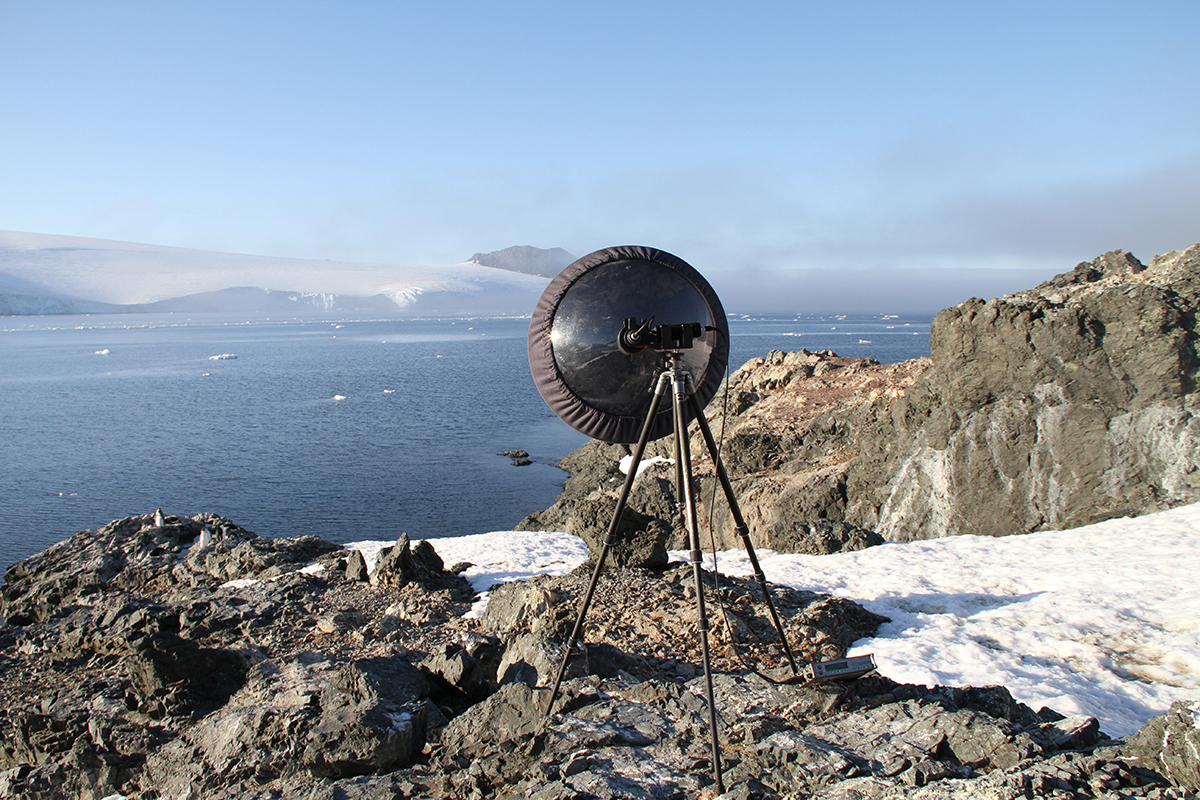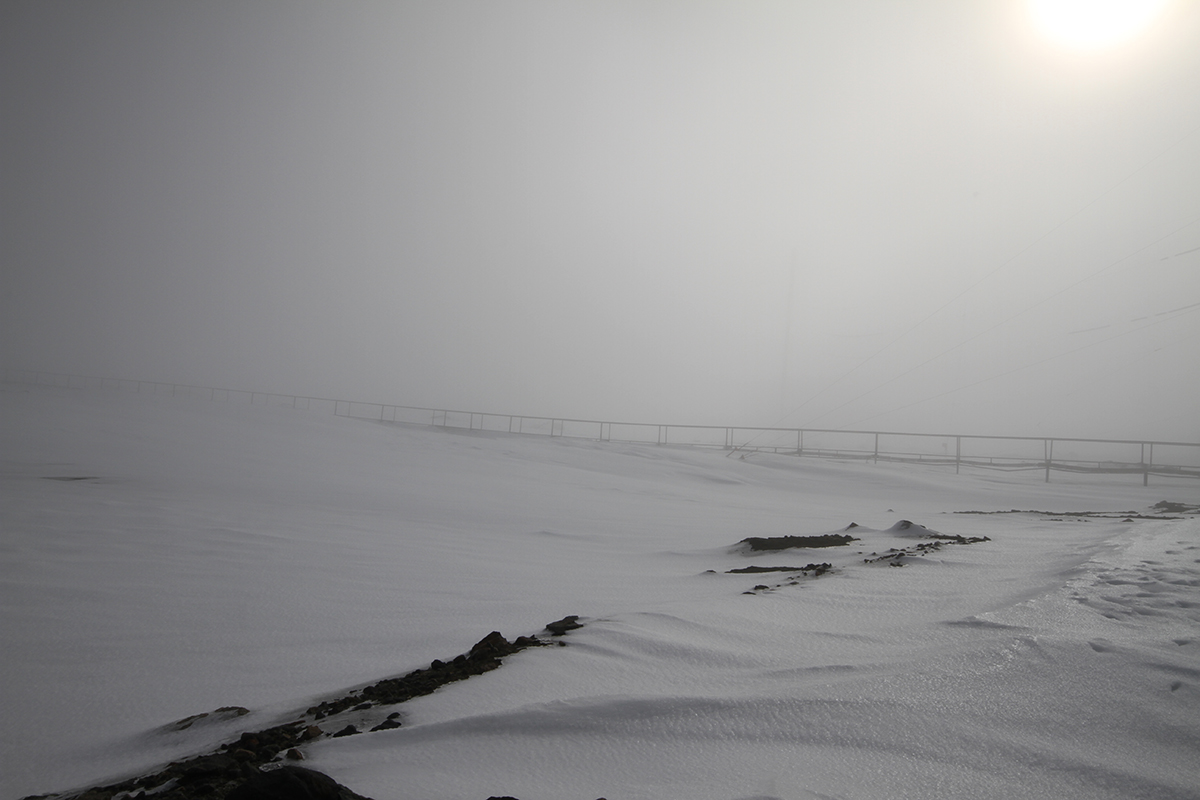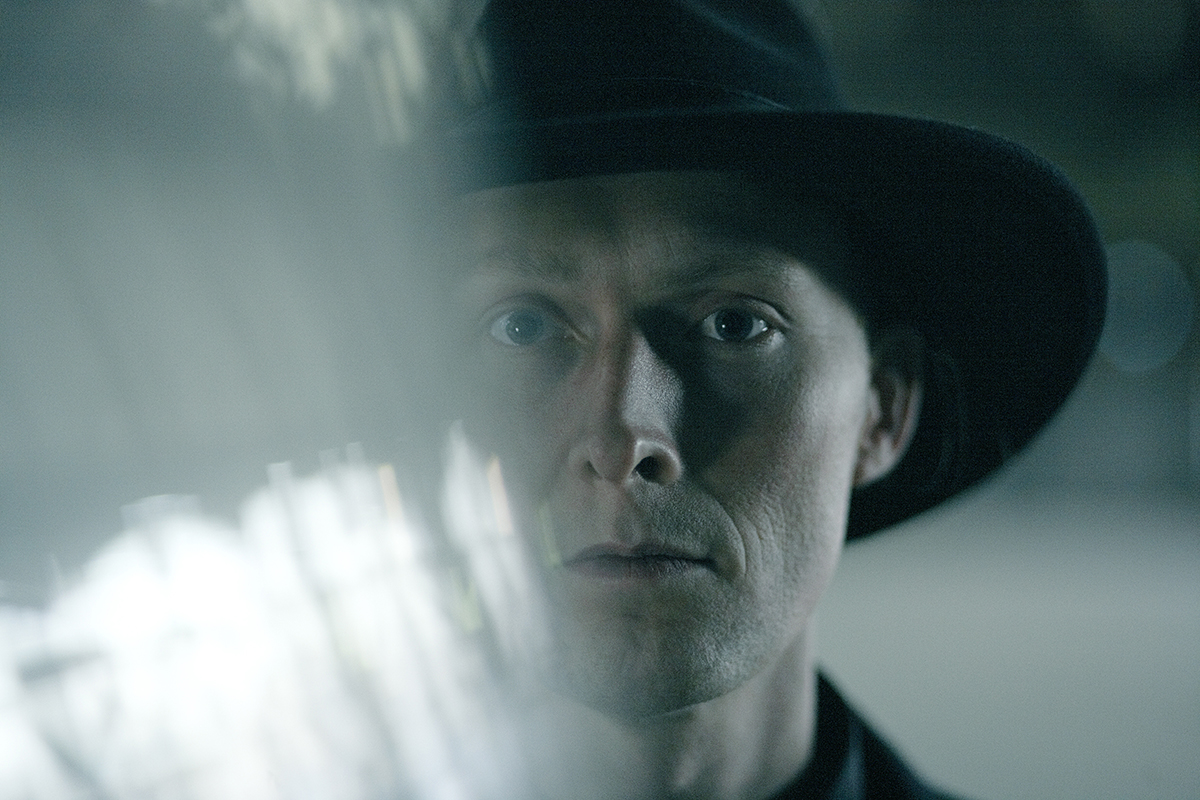
CCME: Lawrence English: Visceral listening
Leading Australian sound artist, composer and curator Lawrence English once described to an interviewer the origins of his passion for field recording, an art that has taken him around the world to many a unique location, as you’ll gather from sampling his works on SoundCloud. In the 1980s, his father would take him and his brother bird-watching or, as instructed in the case of the reed warbler, bird-listening — to first close their eyes in order to locate the hard-to-find bird: “It sounded incredible, like a modular synthesizer on steroids,” writes English.
For his performance in the Cleveland Contemporary Music Event (CCME), English will present Viento: Blizzards of Antarctica and Beyond, mixing sounds he recorded at Argentina’s Antarctic Station. He writes, “The wind battered the base structures and telecommunications equipment, making a range of unusual tonal phase drones, which you can hear in the recordings… Listening back to these recordings I am struck by the sheer physicality of the wind. It’s rare that you feel physically reduced by the motion of air, but in both Patagonia and Antarctica that is just how I felt. A small speck of organic dust in a howling storm.”
Rather than a documentary, Viento is field recording as visceral poetry and it’s about the intersection between what English heard, recorded and will mix in the theatre and what each listener in the audience will experience, refracted by their own associations when the Antarctic blizzards buffet their ears, as the artist explained to me by email while on a European tour.

Viento, Blizzards of Antarctica and Beyond, Lawrence English, photo courtesy the artist
In the festival press release, you describe your concerts as “innately synaesthetic.” In what sense are they synaesthetic?
That statement applies more to my solo musical works such as Cruel Optimism. There is a point of nexus where sound transgresses audition and becomes ‘physical,’ where I think a point of synaesthetic realisation can and does occur. This ties into the work I am doing in performance around the concept of the body as an ear — recognising the notion of vibration, more broadly, as an approachable material comprehension of sound.
Will the audience, as you did, feel the force of the winds and sense being reduced to a speck?
With Viento I think the experience is more personal and interior. I think with sound, especially field recordings, there’s an invitation extended to the audience to invest themselves in the sound and complete their understanding of those sounds based on their own experiences and memories. I’ve performed this piece many times now and after almost every performance I’ve had people come up to me and explain where the sounds took them. Some people have told me about memories of being children during big storms or one person recounted being trapped on a boat during a hurricane. Sound is so very pliable in a sense and that opens it up to people, giving them an opportunity to connect to it in ways that can be very direct.

Lawrence English, photo Tralanos Pakioufakis
What form will the concert take in terms of structure and the placement of your audience and the sound system?
Viento is in two parts: two distinct storms or blizzards that were recorded in the summer of 2010. It’s essentially a diffusion piece in the classical sense. I use as many speakers as possible to route the work throughout the space, moving around the sound and highlighting certain qualities of the room, the speakers and the piece. It’s very dynamic in that sense. It’s about playing with the space and dimensions of the room and also the system itself. The mixer is the instrument.
For an audience unused to this kind of work, do you encourage ‘eyes shut’? And do you provide an introduction, for example about field recording?
I think concerts like this are a wonderful excuse to reject ocularcentrism for sure. That said I do introduce the piece and explain how the work happened and some of the experiences I had in Antarctica making the pieces. I think it’s important to create a doorway through which people can approach the work. Once you let yourself walk into the room, a universe of possibility opens up and I know from personal experience the beauty that lies within that place.
–
Playing this week in the Cleveland Contemporary Music Events are concerts by Kupka’s Piano (Friday, 3 November) and ELISION (Saturday, 4 November). Read about these concerts by leading, adventurous Australian musicians and local and international composers here.
Cleveland Contemporary Music Event: Lawrence English, Viento: Blizzards of Antarctica and Beyond; Redland Performing Arts Centre, Cleveland, Brisbane, 10 Nov
Top image credit: Viento, Blizzards of Antarctica and Beyond, Lawrence English, photo courtesy the artist






